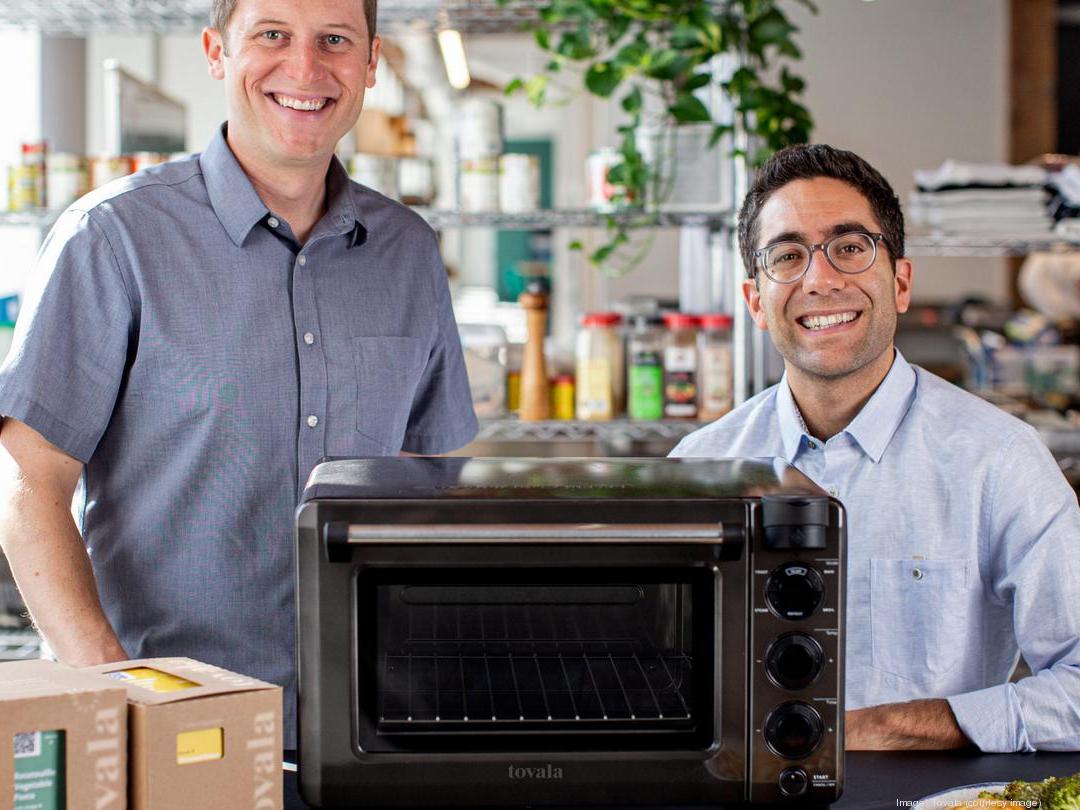Episode Summary
David Rabie isn’t worried about people rushing back to restaurants following the COVID-19 pandemic. As founder and CEO of Tovala — a meal service supported by an innovative smart oven — he’s certain that people are going to be as busy as ever as the reopening continues, and he’s positioned his product to be their secret weapon in the home kitchen.
The Tovala oven is designed to replace multiple kitchen appliances. It can steam, bake, broil and toast, and when a customer scans the barcode on a Tovala recipe card, the wifi-enabled oven will automatically move from one mode to the next, cooking a delicious meal in less than 20 minutes.
Equally as versatile, David has turned to a number of fundraising models to raise $70 million for his hardware startup over the past six years. He got his first investment of $70K in his university’s New Venture Challenge, before moving on to work with YCombinator, angel syndicates and a global crowdfunding platform, as well as traditional venture capital investors.
Along the way, he’s learned a lot about raising capital for his Chicago-based hardware brand, from how being scrappy can actually underwhelm investors, to how industry news can turn the tide at a moment’s notice.
On this episode of the How I Raised It podcast, David shares his tips for fellow entrepreneurs looking to fund their hardware startups and the lessons he’s learned from six rounds of fundraising.
How He Raised It
💰 Who: David Rabie
💰 Company: Tovala
💰 Where to find him: LinkedIn
💰 Money quote: “I think first-time founders don't know what it takes, what it will take, and I think you have to have persistence and grit to be able to make it through. But that naivete in some ways allows you to go after something that might be bigger than you would have if you had gone there and done it before.”
💰 Noteworthy: David and his team chose to leave the Bay Area after YCombinator to return to Chicago where the company draws on its close ties to local universities and a strong founder community.
Capital Gains
[02:16] Getting smart in the kitchen 👉 Tovala sells a smart oven paired with a chef-prepared meal delivery service. The appliance — about the size of a toaster oven — is wifi-enabled and designed to cook in multiple ways, like steaming, baking and broiling. Customers scan a barcode on the meal package and pop in trays of prepped ingredients to cook a meal in 20 minutes or less.
[08:07] Seeds of a solution 👉 When David was a student at the University of Chicago Booth School of Business, he found himself frustrated by the need to use multiple appliances to cook a simple meal, and the idea for Tovala was born.
[09:35] Cash infusion 👉 David has raised $70 million in capital over the past six years, beginning with the New Venture Challenge in 2015, where his team won $70,000 with a self-funded prototype oven. He continued pitching through the summer after graduation, met co-founder Bryan Wilcox and was accepted to the YCombinator startup accelerator in Silicon Valley.
[13:29] The Y factor 👉 YCombinator was a turning point for Tovala, giving the company much-needed credibility with investors for the two $1.6 million seed rounds that followed.
[15:29] From scrappy to shiny 👉 The biggest investment in Tovala’s first seed round was a $400K check from Origin Ventures, but in the second round David learned just how important good branding can be to help investors see the product’s potential.
[18:11] Working with angel syndicates 👉 In the seed rounds, David raised funds through two AngelList Syndicates, both with investors the team had gotten to know personally through face-to-face meetings.
[20:01] Advanced crowdfunding 👉 During its Series B, Tovala worked with Our Crowd, the world’s largest crowdfunding platform that operates like a traditional venture fund in terms of screening and diligence processes.
[21:43] The tables have turned 👉 David walked into his Series A pitches thinking he had nailed the questions investors would ask. But a number of food industry news stories in 2017 (think Blue Apron, Whole Foods and Juicero) rapidly shifted the market and set a tougher course for Tovala’s $9 million fundraising round.
[24:47] Weathering the storm 👉 David credits the success of his uphill battle in Series A to a cadre of supportive insiders and his persistence, taking every pitch as an opportunity to test something new.
[26:18] Looking back on Series B & C 👉 Tovala’s two most recent rounds of fundraising landed investors like Comcast and Left Lane Capital and focused heavily on retention data and potential to scale, especially in a post-pandemic market.
[31:16] David’s tips for hardware startups 👉 Founders raising capital for hardware startups can 1) build credibility by creating a great team, 2) reduce investor risk by relying on existing manufacturing lines and 3) get to market as quickly as possible and learn along the way.
[33:06] Chicago’s startup scene 👉 Chicago’s entrepreneurship hub benefits from connections with local universities and a pay-it-forward mentality among the founder community. Other area notables include 1871, mHUB and the Polsky Center at University of Chicago.
[35:21] Lean in to what you don’t know 👉 David says persistence and grit are important for first-time founders, but so is the naivete that pushes you to go after the big dreams.
Top quotes from the episode:
“I asked [our YCombinator partner] at some point, and he said … What we invest in and how we make a lot of our decisions is, Do we think this is the right team, the right people to take this where it needs to go? And second, do we think this can be a billion dollar company? So is the vision big enough?”
“We very much leaned into our scrappiness, and where I felt this would be a positive, now, in hindsight, I think it was a negative. It really did not allow for the investors to visualize what this would look like, as a consumer.”
“I think a big piece of being a founder/CEO that's in charge of fundraising is building up the coping mechanisms to deal with hearing ‘no’ over and over and over again, and not letting that get in your way. And I think you should learn that every pitch you have is another opportunity to test something a little different, and figure out what's working and what's not working. But I do think it is about persistence.”
“One of the things we did with our hardware is we tried to rely as much as we could on existing suppliers, existing technologies, existing manufacturing lines, in order to reduce our risk, reduce our capital expense and allow us to go to market a lot faster. And I think that's probably the case for a lot of hardware that's out there, it often doesn't have to be built custom from the ground up. That's a great way to reduce your risk and help investors get more comfortable with what it'll take.”
“We really felt like we wanted to get to market as fast as possible, which is not often the mentality of a hardware company. For us the question wa: What are the key assumptions we want to validate? How do we do that as cheaply and quickly as possible? We can learn those things, and then over time, we can invest more and more in our hardware. And so we haven't spent millions and millions of dollars in hardware R&D because we understood what role hardware plays in our consumer journey.”
“I think first-time founders don't know what it takes, what it will take, and I think you have to have persistence and grit to be able to make it through. But that naivete in some ways allows you to go after something that might be bigger than you would have if you had gone there and done it before.”


